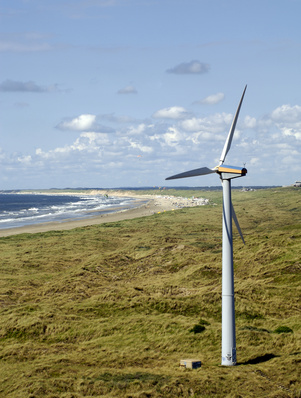 Bonaire, a small Caribbean island with a population of 14,500, is making the switch to 100% renewable energy. The island previously relied on diesel fuel generators to provide all its power, which was both costly and resulted in price instability. However, a fire that destroyed its diesel power plant in 2004 allowed the small municipality the opportunity to reevaluate how to meet its residents’ needs going forward.
Bonaire, a small Caribbean island with a population of 14,500, is making the switch to 100% renewable energy. The island previously relied on diesel fuel generators to provide all its power, which was both costly and resulted in price instability. However, a fire that destroyed its diesel power plant in 2004 allowed the small municipality the opportunity to reevaluate how to meet its residents’ needs going forward.
The island now has 12 wind turbines that provide up to 90% of the island’s needs during peak wind times. A battery storage system and five diesel generators that can run on biodiesel ensure that power continues at all times and will provide 50-55% of all power needs. Bonaire plans to generate its own biodiesel using local algae resources. Once that is accomplished, the island will be fueled by 100% renewable energy.
The transition to renewable energy has achieved several significant improvements for the island:
• Reduced and stabilized energy costs. Bonaire residents currently pay $0.22/kWh, compared with an average of $0.36/kWh on neighboring islands. At peak fuel prices, Bonaire residents were paying $0.50/kWh.
• Job growth. Construction and ongoing operation and maintenance of the power systems have created jobs for local residents.
• Energy independence. Bonaire will no longer be subject to the price fluctuations in foreign diesel markets and rely on imported fuel to meet its needs.
The wind-diesel system cost Bonaire US $60 million and is expected to return $15 million per year in power. Bonaire stands out as a strong example among its island neighbors of what is possible using a 100% renewable energy approach.
Sources:
“A Caribbean Island Says Goodbye Diesel and Hello 100% Renewable Electricity”
“Bonaire WEB Biodiesel Wind Power Plant | Case Study“
